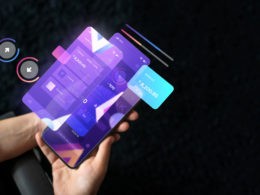With the growing focus on digital privacy, secret texting apps have emerged as a favored option for maintaining confidential communication. These apps often look like regular apps or games, but they offer hidden features such as encrypted messaging and self-destructing texts. If you’re curious about these apps, here’s a comprehensive guide on what secret texting apps look like and how they function.
1. Disguised as Everyday Apps or Games
One of the key features of secret texting apps is their ability to camouflage themselves as something else, often an ordinary or entertaining app. Secret messaging apps that look like games are a popular choice for those wanting to hide their communication activities. For example:
- Game-Inspired Apps: Some secret texting apps are designed to look like harmless mobile games. When opened, they appear as fun games, but once you know the right password or gesture, they reveal their true purpose as messaging platforms.
- Fake Calculator or Utility Apps: Similarly, apps like Calculator Pro+ appear as calculators but hide messages behind a passcode. Some even resemble to-do lists, photo galleries, or system apps to avoid suspicion.
These clever disguises make it almost impossible to recognize them as messaging apps just by glancing at the phone.
2. Encrypted Messaging Interfaces
Secret texting apps prioritize security, often featuring end-to-end encryption, ensuring that messages can only be read by the sender and recipient. Some well-known apps include:
- Signal: Known for its top-notch encryption, Signal also offers disappearing messages and self-destructing texts.
- Wickr Me: This app provides a secure messaging experience with encryption and self-destructing messages, wrapped in a simple, unassuming interface.
Encryption adds a layer of protection that ensures sensitive information stays private.
3. Self-Destructing Messages
A common feature of secret messaging apps is the ability to send self-destructing messages. These messages automatically delete after being viewed or after a set time. This is especially useful for individuals who don’t want their communication history to be easily accessible. Apps like Snapchat and Telegram are famous for such features, allowing messages, photos, or videos to vanish after a specific period.
4. Secret Messaging Apps That Look Like Games
Some of the most intriguing secret texting apps are those that look like games. These apps appear to be harmless entertainment, but once inside, they provide users with secure communication tools. Here are a few examples:
- ChatGame: This app looks like a typical mobile game but hides private conversations behind a game-like interface. Only those who know how to unlock the secret features can access the messaging options.
- Hide it Pro: It might look like a media player or a casual game, but it contains a secure messaging platform, giving users a covert way to communicate.
These apps offer the perfect cover for those who don’t want others snooping through their personal conversations.
5. Password-Protected Conversations
Many secret messaging apps allow users to password-protect specific conversations or the entire app. This feature enhances security, ensuring that private messages remain inaccessible without the correct password or biometric authentication. Examples include:
- Vault-Hide: Known for its ability to hide private messages and files behind a password-protected interface.
- CoverMe: This app allows users to lock certain chats or hide the entire app from view unless unlocked with a password or PIN.
6. Fake App Covers and Hidden from App Drawer
Some apps take secrecy a step further by allowing users to hide them entirely from the app drawer or home screen. These apps remain invisible unless accessed through a secret gesture or code. For example:
- Private Message Box: This app hides conversations and can be made invisible from the app drawer, only accessible through a secret code.
- CoverMe: Not only does it offer encrypted messaging, but it can also disguise itself as another app, making it extremely difficult for anyone to find.
This makes it an excellent choice for those who need an additional layer of privacy.
7. Minimalist User Interfaces
Secret texting apps usually opt for a minimalistic and simple user interface (UI) to avoid drawing attention. Unlike popular messaging apps like WhatsApp, secret texting apps look like plain and basic apps that don’t stand out. For instance, they may look like plain calculators, to-do lists, or generic games with nothing to suggest they’re hiding secret messages.
8. Extra Privacy Features
These apps often come loaded with privacy-enhancing features beyond basic messaging, including:
- Screenshot Alerts: Some apps notify users if someone attempts to take a screenshot of a chat.
- Block Forwarding: Apps like Signal and Telegram allow users to disable message forwarding, preventing others from sharing sensitive information.
- Incognito Mode: Certain apps offer an incognito mode where chats are automatically hidden after a specific duration, or the app self-locks after inactivity.
Why Use Secret Messaging Apps?
While secret messaging apps offer privacy and security, there are many legitimate reasons for using them. Professionals, for example, may want to keep business communications confidential, while others might use them for personal privacy. These apps can also be essential for activists, journalists, and anyone living in a region where free communication is restricted.
However, it’s important to recognize that secret messaging apps can also be used for unethical or illegal purposes, so it’s essential to use them responsibly.
Conclusion
Secret texting apps come in various forms, including those that look like everyday apps or even games, providing users with a secure way to communicate discreetly. Whether they are disguised as games, calculators, or password-protected platforms, these apps are designed to prioritize user privacy. With features like end-to-end encryption, self-destructing messages, and hidden interfaces, they ensure that your private messages remain secure and unseen.












